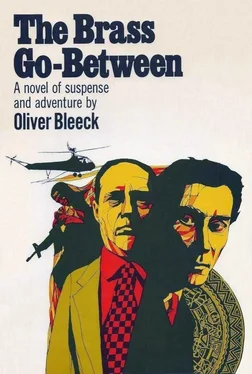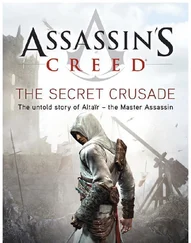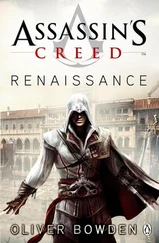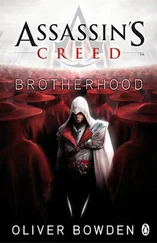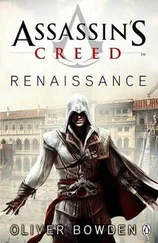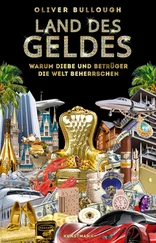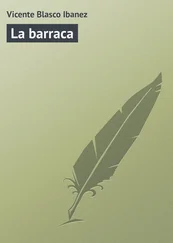Oliver Bleeck - Brass Go-Between
Здесь есть возможность читать онлайн «Oliver Bleeck - Brass Go-Between» весь текст электронной книги совершенно бесплатно (целиком полную версию без сокращений). В некоторых случаях можно слушать аудио, скачать через торрент в формате fb2 и присутствует краткое содержание. Город: New York, Год выпуска: 1969, Издательство: William Morrow, Жанр: Детектив, на английском языке. Описание произведения, (предисловие) а так же отзывы посетителей доступны на портале библиотеки ЛибКат.
- Название:Brass Go-Between
- Автор:
- Издательство:William Morrow
- Жанр:
- Год:1969
- Город:New York
- ISBN:нет данных
- Рейтинг книги:3 / 5. Голосов: 1
-
Избранное:Добавить в избранное
- Отзывы:
-
Ваша оценка:
- 60
- 1
- 2
- 3
- 4
- 5
Brass Go-Between: краткое содержание, описание и аннотация
Предлагаем к чтению аннотацию, описание, краткое содержание или предисловие (зависит от того, что написал сам автор книги «Brass Go-Between»). Если вы не нашли необходимую информацию о книге — напишите в комментариях, мы постараемся отыскать её.
Brass Go-Between — читать онлайн бесплатно полную книгу (весь текст) целиком
Ниже представлен текст книги, разбитый по страницам. Система сохранения места последней прочитанной страницы, позволяет с удобством читать онлайн бесплатно книгу «Brass Go-Between», без необходимости каждый раз заново искать на чём Вы остановились. Поставьте закладку, и сможете в любой момент перейти на страницу, на которой закончили чтение.
Интервал:
Закладка:
Separated from the house by some fifty yards was a large, windowless one-story structure of what looked to be gray marble. It was built on a ledge that had been cut into the hill and I assumed that it contained Spencer’s art collection.
The jeep with the FOLLOW ME sign took us up a crushed-stone drive that circled in front of two massive green copper doors that were recessed into the gray stone. The jeep stopped and I pulled up behind it. The guard came back to the Ford and bent down to look at us. “No packages, briefcases, or luggage are allowed inside,” he recited. “If you will step out of the car, please.”
I stepped out and he said, “Hold your arms straight out from your body, please.” I did and he ran expert hands over me. “Thank you,” he said, then turned to Mbwato and gave him the same instructions and the same treatment. Mbwato left his large, black attaché case on the front seat.
The guard went up three steps to the door, pressed a button, and spoke into an intercommunication device. “Cleared at primary checkpoint,” he said. “Henderson now returning to mile-point-one.” The communications device squawked something and the green doors were opened by a wide-shouldered, narrow-hipped man, about thirty, with short-cropped brown hair and a face that would have been almost pretty but for a nose that someone had broken. “Mr. St. Ives,” he said, looking at me, “and Mr. Mbwato, I believe.” I nodded. “I’m Mr. Spencer’s secretary. Will you follow me, please.”
Mbwato and I followed him down a wide carpeted hall to a closed door. He knocked on the door and then opened it, stood to one side, and motioned us through. I went first; Mbwato followed. It was a good-sized room, well furnished and richly carpeted. Opposite the door was a glass wall that afforded a view of the lake. A massive carved desk was at the far right. Behind the desk was Spencer and behind Spencer, resting on the floor and leaning against the wall, as if nobody could think of a place to hang it, was the shield of Komporeen.
Mbwato gave a long sigh as we moved toward the desk. Spencer stood up, glanced at the shield, and then looked at me. “You haven’t seen it before, have you, St. Ives?”
“No.”
“But Mr. Mbwato — or rather, Colonel Mbwato, I should say — has.”
“Often,” Mbwato said.
“You said that you were bringing no one who was of the police, St. Ives,” Spencer said, and toyed with a letter opener on his desk. It was the only thing on it. “You lied to me.”
“I did?”
“Yes, you did. Colonel Conception Mbwato is very much of the police. The Komporeenean police.”
“I thought you were in the army,” I said to Mbwato.
The big man smiled gloriously and shrugged. “In a small country such as mine, Mr. St. Ives, it is sometimes difficult to separate the duties of the constabulary from those of the armed forces.”
“They have a name for Colonel Mbwato in his country,” Spencer said. “They call him ‘The Rope.’”
“Do they?” I said to Mbwato.
“Only the enemies of my country, I assure you, Mr. St. Ives.”
“And there have been at least two thousand of them in recent months,” Spencer said. “They have dangled from the end of ropes.”
“History demonstrates that each revolution produces a fair crop of both traitors and patriots,” Mbwato said. “It was at one time my duty to deal with the traitors.”
I moved over to the shield, squatted down, and looked at it. I was surprised that it was a dull, dark green. But most brass that is nine hundred or so years old probably is. In the center of the shield was a sunburst and from it emanated in widening concentric circles carefully cast figures who seemed busy running, harvesting, planting, making love, and killing each other with sharp-looking knives and spears. I thought they were extremely well done as were some animals who were also getting killed. It may have told a story, but there didn’t seem to be much plot.
I stood up and turned to Spencer. “Anything else?”
“You may have cost me a great deal of money, St. Ives.”
“I haven’t thought about it.”
“You will,” he said, tightening his mouth into what I suppose he hoped was a grim line.
“Mr. Spencer has a flair for the dramatic, doesn’t he?” Mbwato said.
I shrugged. “You want me to help carry the thing or would you rather do it yourself?”
“I can manage,” Mbwato said.
“You’ll never get another assignment, St. Ives,” Spencer said. “I’ll see to it.”
Mbwato moved over to the shield, ran a large hand over its edge, then leaned it from the wall and slipped his left arm through two brackets on its back. He picked it up easily, all sixty-eight pounds, and I thought that it was a perfect fit.
“Do you have any more threats?” I said to Spencer.
He was staring at the shield and once again there was that look that I had seen twice before, once on the face of a fat man in a cafeteria and once on the face of a cop on the take in a New York hotel. Greed. Spencer ran a thin, pointed tongue over his lips as if he could taste it.
“It’ll never get to Africa,” he said. “He’ll sell it in London or Rotterdam. He’s fooled you, St. Ives. He hasn’t fooled me. He’ll sell it.”
“Would you sell it in Rotterdam or London?” I asked Mbwato.
“How much, Mr. Spencer?” Mbwato said softly. “How much do you think it would bring — in Rotterdam, say?”
“How much do you want?” Spencer said in a whisper, his thin tongue working at his lips again. Mbwato stared back at him, holding the shield chest high, his face for once impassive. “How much?” Spencer said again, hurling the words into the silence. “How much do you want?” This time it was a scream, one that keened out on the last word.
Mbwato looked at him without expression. Then he smiled, that gleaming, brighten-the-corner-where-you-are smile of his, and turned toward the door. I followed him through it and down the hall.
Halfway to the green copper doors that were held open by the man with the broken nose, Spencer called after us. It was more of a scream than a call. “How much, Mbwato? How much do you want?”
We didn’t hesitate or stop. We went through the door and down the three steps and across the crushed rock to the car. Mbwato put the shield in the rear, leaning it against the back seat. I had the car started by the time he got in next to me. “By the way,” he said, “what time is it?”
I didn’t look at my watch. I put the car into drive and pressed down on the accelerator. The rear wheels churned up some of the crushed rock. “It’s getaway time,” I said.
Chapter twenty-four
I kept the ford at twenty miles per hour on the way to the gate. We went past the blue jeep and its guard only glanced at us.
“Do you think he’ll give up so easily?” Mbwato said.
“Spencer? I don’t know.”
“At the gate perhaps,” he said.
“What about the gate?”
“They could try to stop us there.”
“He could have stopped us in the house. He’s got enough help around.”
“No,” Mbwato said. “Not in his home. It would be too complicated. I think the gate and if so, one must be prepared.” He took a key from his pocket and fitted it to the lock of his large attaché case. He opened it and I glanced at its contents.
“What in the hell is that?”
“Part of the Virginia contingency plan,” he said. “A sub-machine gun. A Carl Gustaf M45 to be exact, manufactured in Sweden.” He busily snapped things together. “Fires a 9-millimeter parabellum round, six hundred a minute. Thirty-six in the magazine,” he said, clicking one into the breech or whatever it was. I’m sure Mbwato knew.
Читать дальшеИнтервал:
Закладка:
Похожие книги на «Brass Go-Between»
Представляем Вашему вниманию похожие книги на «Brass Go-Between» списком для выбора. Мы отобрали схожую по названию и смыслу литературу в надежде предоставить читателям больше вариантов отыскать новые, интересные, ещё непрочитанные произведения.
Обсуждение, отзывы о книге «Brass Go-Between» и просто собственные мнения читателей. Оставьте ваши комментарии, напишите, что Вы думаете о произведении, его смысле или главных героях. Укажите что конкретно понравилось, а что нет, и почему Вы так считаете.
